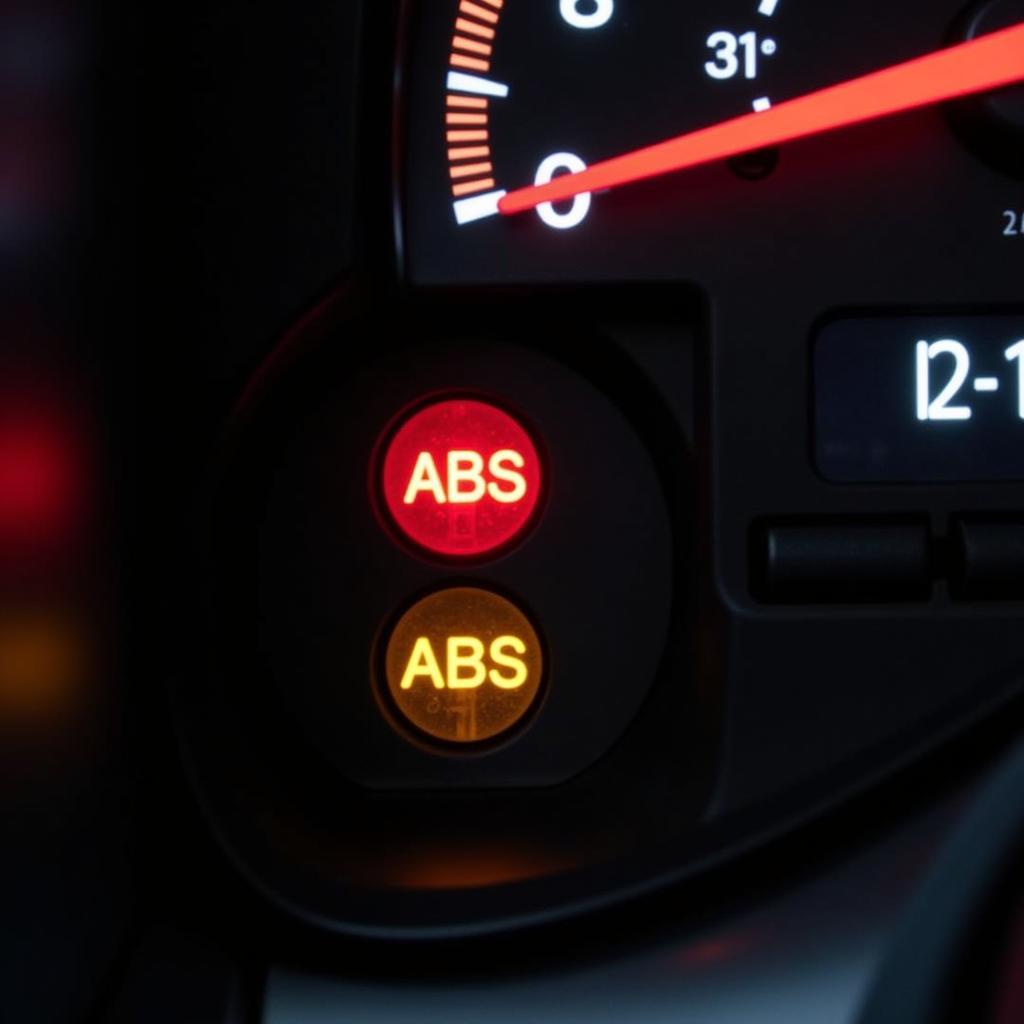The brake warning light on your Volkswagen Eurovan is a crucial safety feature that should never be ignored. It signals a potential issue within your braking system that requires immediate attention. While it can be unnerving to see this light illuminate on your dashboard, understanding its various causes can help you address the problem effectively.
Common Reasons Your Eurovan Brake Warning Light Is On
There are several reasons why your Eurovan’s brake warning light might turn on, ranging from simple fixes to more complex issues:
- Low Brake Fluid: One of the most common culprits is low brake fluid. Your braking system relies on hydraulic pressure to function correctly, and insufficient fluid can significantly compromise braking performance.
- Worn Brake Pads: Brake pads have wear indicators that emit a high-pitched squealing sound when they become too thin. If ignored, this can lead to the brake warning light illuminating.
- Faulty Brake Light Switch: The brake light switch, located under the brake pedal, signals your brake lights to turn on when you press the pedal. A malfunctioning switch can trigger the brake warning light.
- ABS Issue: If your Eurovan is equipped with an Anti-lock Braking System (ABS), a problem with the ABS module or wheel speed sensors can also cause the warning light.
- Parking Brake Engaged: While seemingly obvious, accidentally leaving the parking brake partially engaged can also light up the warning.
Troubleshooting Your Eurovan’s Brake Warning Light
Before assuming the worst, there are a few things you can check yourself:
-
Check Brake Fluid Level: Park your Eurovan on a level surface and locate the brake fluid reservoir under the hood. The reservoir will have minimum and maximum fill lines. If the fluid level is below the minimum, carefully top it off with the correct type of brake fluid specified in your owner’s manual.
-
Inspect Brake Pads: If you suspect worn brake pads, try to visually inspect them through the spaces between the wheel spokes. Look for significant wear or if the pad material is close to the metal backing plate.
-
Release the Parking Brake: Ensure your parking brake is fully disengaged. Even a slightly engaged parking brake can trigger the warning light.
Expert Insight from Mechanic John Miller: “Many people overlook the simple things. Always start by checking your brake fluid and ensuring your parking brake is fully released.”
When to Seek Professional Help
If the brake warning light remains on after checking these basic things, it’s crucial to seek professional help immediately. Driving with a compromised braking system is incredibly dangerous.
A qualified mechanic specializing in Volkswagen Eurovans can diagnose the issue accurately. They will have the expertise and specialized equipment to identify the root cause, whether it’s a faulty brake line, a problem with the ABS system, or a malfunctioning brake master cylinder.
> **Expert Insight from Mechanic John Miller:** "Ignoring your brake warning light is like playing Russian Roulette with your safety and the safety of others on the road. Get it checked by a professional." Preventative Maintenance for Optimal Brake System Health
Regular maintenance can prevent many brake-related issues. Follow these tips to keep your Eurovan’s braking system in top shape:
- Regular Brake Fluid Flushes: Have your brake fluid flushed and replaced according to your Volkswagen’s recommended maintenance schedule. Over time, brake fluid can absorb moisture, which reduces its effectiveness.
- Timely Brake Pad Replacement: Don’t wait until you hear that dreaded squealing sound. Have your brake pads inspected regularly and replaced before they wear down too much.
- Thorough Inspections: During your regular service appointments, have a mechanic thoroughly inspect all components of your braking system, including the brake lines, hoses, calipers, and master cylinder.
Conclusion
Your Eurovan’s brake warning light is a crucial safety indicator that should never be ignored. While some causes might be simple to address, such as low brake fluid, others require the expertise of a qualified mechanic. Regular maintenance and timely repairs are essential to ensure optimal brake system performance and, most importantly, your safety on the road.

